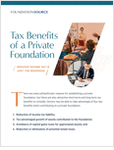What You Need to Know
- Qualified opportunity funds offer a way to defer capital gains from other investments.
- Qualified small business stock offers a tax-advantaged way to invest in small company shares.
- An exchange fund offers some investors an option to diversify their concentrated positions.
There are a number of tax-friendly investment options that could benefit high-net-worth clients looking to manage their taxes. Three examples are qualified opportunity funds, qualified small business stock and exchange funds.
These can be good options for some clients in certain situations, offering solid tax advantages, but there are also risks.
Qualified Opportunity Funds
Opportunity zones were created by the Tax Cuts and Jobs Act of 2017 to encourage investment in low-income areas. According to the Internal Revenue Service, thousands of low-income communities in all 50 states, the District of Columbia and five U.S territories are designated as opportunity zones.
Congress created qualified opportunity funds (QOFs) to facilitate investment in these areas. A QOF is not a mutual fund but rather a corporation or partnership that is formed for the purpose of investing in property in a qualified opportunity zone. In fact, 90% of the money in a QOF is required to be invested in qualified opportunity zone property.
Benefits of QOFs
Some pros of qualified opportunity funds for clients include:
- The ability to defer taxes on realized capital gains from other investments into a QOF within 180 days of realizing the gain. The gain can be deferred until the earlier of when the qualified opportunity fund is sold or exchanged or Dec. 31, 2026. Note that investors can use only the gain portion of this prior investment to fund the QOF while “pocketing” their cost basis from the prior investment tax-free to use as they wish.
- If investors hold their investment in a QOF for at least 10 years, the appreciation on the money used to invest in the fund will not be subject to capital gains taxes. Note that they will be subject to capital gains taxes on any funds invested that used the tax deferral once the Dec. 31, 2026, date has passed. Any appreciation from the money invested in the qualified opportunity fund will retain its eliminated status if the QOF is held for at least 10 years.
Clients who invested early in a qualified opportunity fund using realized capital gains from other investments had the opportunity for a 10% step-up in basis if the gains were held in the fund for at least five years and an additional 5% step-up for funds held at least seven years. The step-up expires on Dec. 31, 2026, so the initial investment period for this benefit has lapsed.
Drawbacks of QOFs
Some potential pitfalls of qualified opportunity funds include:
- Investors must be accredited investors to be able to invest in many QOFs.
- Investing in an opportunity zone can provide benefits to the community involved, but the benefits for those investing in these areas through QOFs are still unclear.
- It is important for prospective investors to do their due diligence as to where the qualified opportunity fund will invest and the viability of these investments. It is also critical to research the background of those managing the fund to determine their qualifications and any past successes for investors.
- Not all states follow the federal rules regarding tax benefits at the state level.
Qualified opportunity funds offer an opportunity to invest in lower-income areas or opportunity zones. The jury is still out on whether these are good investments. QOFs offer a number of tax advantages, but each fund needs to be scrutinized before a client invests.
Qualified Small Business Stock
Qualified small business stock (QSBS) allows shareholders of certain small businesses to be excluded from federal taxes on any gains from selling the shares. This falls under Section 1202 of the IRS code.
Section 1202 provides an incentive for individual, non-corporate investors to invest in the shares of small businesses. The latest iteration of Section 1202 says that 100% of any capital gains of shares acquired after Sept. 27, 2010, will be excluded from taxes if the shares are held for at least five years. Additionally, the alternative minimum tax will not apply to shares sold, nor will the 3.8% net investment income tax assessed to high-income taxpayers as part of their capital gains taxes.
Shares acquired before Sept. 27, 2010, are eligible for lesser capital gains exclusions and are not exempt from the AMT.
The main benefit of investing in qualified small business stock is the potential for federally tax-free capital gains if the shares perform well. This capital gains tax exclusion can greatly increase clients’ profits on holding the shares if things pan out well for them.
If a client is fortunate enough to invest in a small business that makes it big and whose shares really appreciate, this can help build wealth.












 Copyright © 2024 ALM Global, LLC. All Rights Reserved.
Copyright © 2024 ALM Global, LLC. All Rights Reserved.